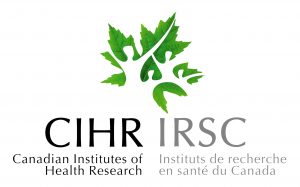
CIHR Project Grants Spring 2022 Results
Congratulations to the recipients of the Canadian Institutes of Health Research 2022 Spring Project Grant Competition! We were thrilled to see 12 WHRI and BCCHR-WHRI

Congratulations to the recipients of the Canadian Institutes of Health Research 2022 Spring Project Grant Competition! We were thrilled to see 12 WHRI and BCCHR-WHRI

We invite you to join us in congratulating the WHRI investigators who were recipients of the CIHR Patient-Oriented Research Awards, the CIHR Operating Grant: POPCORN

We invite you to join us in congratulating the recipients of the 2022 Canada Graduate Scholarships: Master’s Awards, including four trainee members of the Women’s

The University of British Columbia Faculty of Medicine has announced the recipients of its 2022 Distinguished Achievement Awards. The awards recognize “faculty members who exemplify

CIHR’s Institute of Health Services and Policy Research has issued a pre-announcement for the Transforming Health with Integrated Care (THINC) Implementation Science Team Grants competition

We would like to extend a warm congratulations to Dr. Crystal Karakochuk and Dr. Gina Ogilvie on their new and renewed Canada Research Chair appointments!
The Women’s Health Research Institute would like to acknowledge that we are uninvited guests on the unceded ancestral territories of the xʷməθkwəy̓əm (Musqueam), Skwxwú7mesh (Squamish), Stó:lo, and sel̓íl̓witulh (Tsleil-waututh) Nations.
As a provincial research institute committed to improving the health outcomes of women, including those across the 2SLGBTQIA+ spectrum, we recognize our responsibility in the collective effort towards establishing culturally safe health care systems and services that address health inequities among Indigenous peoples, especially Indigenous women, girls, and Two-spirit peoples.
We encourage all people involved in research to read both the Truth and Reconciliation Commission of Canada: Calls to Action and the In Plain Sight Report, and reflect on ways we can incorporate the recommendations into our work. As we gather in spaces together, we encourage you to reflect on your positionality on these lands and your personal commitments to reconciliation.